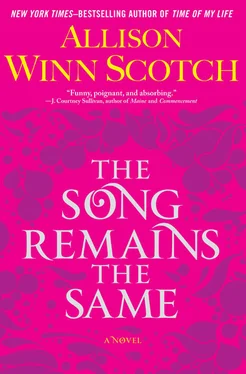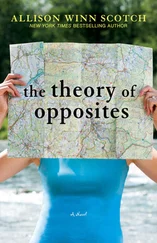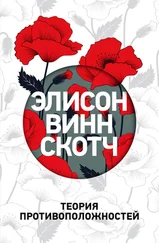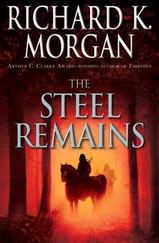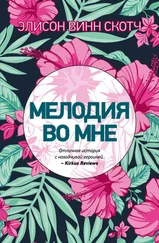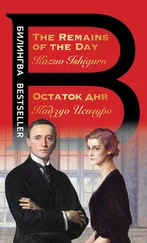I couldn’t finger it exactly, what it was. The Beatles were still stuck in my head, and I couldn’t shake those lyrics, the melody running through me like my own blood. So I told her that I had a sense of emotional memory, as silly as that sounded. She assured me that it didn’t sound silly at all, but all the same, I felt self-conscious about how pretentious I sounded until she urged me to continue. That she wouldn’t judge me. I thought of her in the dog run and that maybe we would have been friends in another life, so I told her.
I told her about how when I think of Peter, and then, when I really focused and thought about my dad, what struck me most was the general ambivalence that rises up within me. That I can’t remember a single anecdote about my father, and yet still, in my core, there is this beigeness. For lack of a better word, I said, and she nodded because she got it. Like something has been cut out, like I’m not allowed to feel anything, so I choose to feel indifference.
“I’d like to feel red,” I said, and her forehead wrinkled. “What I mean is, I’d like for my first association with love—whether with my husband or with my father—to be passionate, fulfilled. That should be part of my promise to be this new self.”
“Love ebbs and flows,” she said. “There can’t be hot without being cold.”
“I know that. Of course, I mean, I know that.”
“But marriages do survive affairs,” she counseled. “It’s a question of forgiveness from one party and repentance from the other.”
“But that’s just it,” I said. “The forgiveness part is both easy and hard—I can’t remember what he did, other than what he’s told me. And yet, I also have no history on which to rely to give me the faith to keep going.”
“So how about you stop analyzing it?” She shifted in the armchair.
“Stop analyzing it? I’m an analyzer: that’s what everyone says. I can’t stop. That’s what I do.”
“But you’ve admitted you want to be different, so why not try a different tactic?”
“Like…just…what? Living it?”
“Well, why not?” She shrugged, though I knew this wasn’t a casual suggestion. “Why not—for one week—just try to live day to day and see how you feel about that, see if it jars anything for you, and see if, for lack of a better word, as you said, it helps distill this beigeness.”
“It seems too easy.”
“It won’t be the cure,” she promised. “But for this particular aspect of your recovery, it may be helpful to tap into your emotional well, to see if we can get past the wall of ambivalence.”
“Like that might then trigger something else?”
“Like, in the spirit of living in the moment, that might at least give you a different answer when I ask you about love next week.”
“Small steps,” I said.
“Small steps,” she said. “Let’s learn to walk before we can run.”
B y Friday, I have lived in enough moments that my brain has almost stopped its endless flurry of splintering feedback. Liv prescribed a sleeping pill that has helped smooth those sharp edges, and for four nights I have fallen deeply into slumber, unable to remember my dreams the next morning. I’m well rested in a way that I haven’t been since the accident. I press back my irritation when my mother sends me a yoga mat and homemade gluten-free cookies via FedEx, manage a mostly cheery response when Samantha hesitantly shares the news of a friend’s impending baby shower, abort a malignant thought when Peter’s text-message alert goes off while he’s standing in the kitchen—the idea of Ginger fleeing as quickly as it comes. By Labor Day weekend—nearly a month since I’ve been back home—I’m surprised at how easily I have taken to it: shoving it all aside and simply being, how it might actually be a choice: to embrace a different color in the spectrum of the rainbow.
Liv and my doctors at Mount Sinai Hospital have given me the go-ahead for sex.
“Anatomically,” Dr. Hewitt, head of my new team tells me, “you’re A-OK.” Like she’s a pediatrician, and I’ve beaten a case of the sniffles. “If you’d like to engage with your husband, you won’t do yourself any harm.”
“Psychologically,” Liv said before she left on Tuesday, “it might be a positive step in the right direction for you guys to reconnect—though only if that feels right. There’s no rush.”
Tonight, with the long holiday weekend stretched out in front of us, Peter drops his messenger bag by the door, kisses me hello on the couch, then moves to the fridge where he is, no doubt, cracking open a beer. He has told me that in the Labor Days past, we’d retreat to the Hamptons—a gallery client would almost inevitably offer up a room in their weekend house. But this year, we’re trapped, stuck, as I’m not ready for a trek, even if that trek is to a well-appointed six-bedroom with a view of the Atlantic. Peter doesn’t seem to mind that we’re one of the last few remaining in the city, and tries to make our three-day respite, three days of forced togetherness, sound like fun, an adventure. “We can go through all of our CDs and make, like, our own personal concert,” he said last night. “Turn off the lights. Turn the living room into a Pink Floyd laser show.” I didn’t get the reference but I appreciated the effort all the same.
“Hey, come join me on the couch,” I say to Peter tonight, pausing my iPod, slipping it onto the coffee table. I’ve been sitting here for I don’t know how long, lost in the music, living in the moment. And though this new tactic requires that I just be —just inhale and exhale and let life wash over me—the music, well, the music makes me itch, makes me once again try to wind my brain into the past, straddling the space between the past and memory. Discover the moments when I first heard these lyrics, first absorbed the melodies, and thought that something about them might change my life. That when Peter and I trucked out to Jones Beach to see the Counting Crows on a sticky July night for our fourth date, the night, he’s told me, he decided he was in love with me because I knew every word to “A Murder of One,” well, maybe I was already in love with him back. Maybe I was so heady in love with him that he was all I thought about—work and art and my dad and all the rest of it be damned. It was easy to imagine these things, after all, when who knows if they could have been true.
Peter grabs a handful of Cookie Crisp cereal from the open box on the counter, pops a few pieces in his mouth, and sinks down next to me on the gilded, hideous sofa, still chewing. He plops the beer on top of a magazine on the coffee table.
“What’s up?” he says. “How was your day?”
“Boring. Went by too slowly. Went by too quickly. All of the above. Same story, different day. Next week, once I’ve been cleared to get out of here, really, like get out of here—back to the living world, my first stop is a new wardrobe. Second stop—new couch.”
“I already know what’s wrong with the couch. But what’s wrong with your wardrobe?”
“Too boring, too beige.” It’s all goddamn neutrals is what it is. Where is the red that the fabulous me should be wearing?
“And you’ll go back to the gallery soon,” he says, eating the last of the cereal. “That will break up the monotony.”
I nod, hopeful that he is right, doubtful that he is right all the same. But I resolve to live in the moment! and so I smile at him, stifling the urge to say that it’s not just the monotony, idiot! It’s the void that is the blank space and the monotony is just the effect, not the cause! No, I set that aside, and evaporate it from my mind, and there it goes, gone.
Читать дальше
